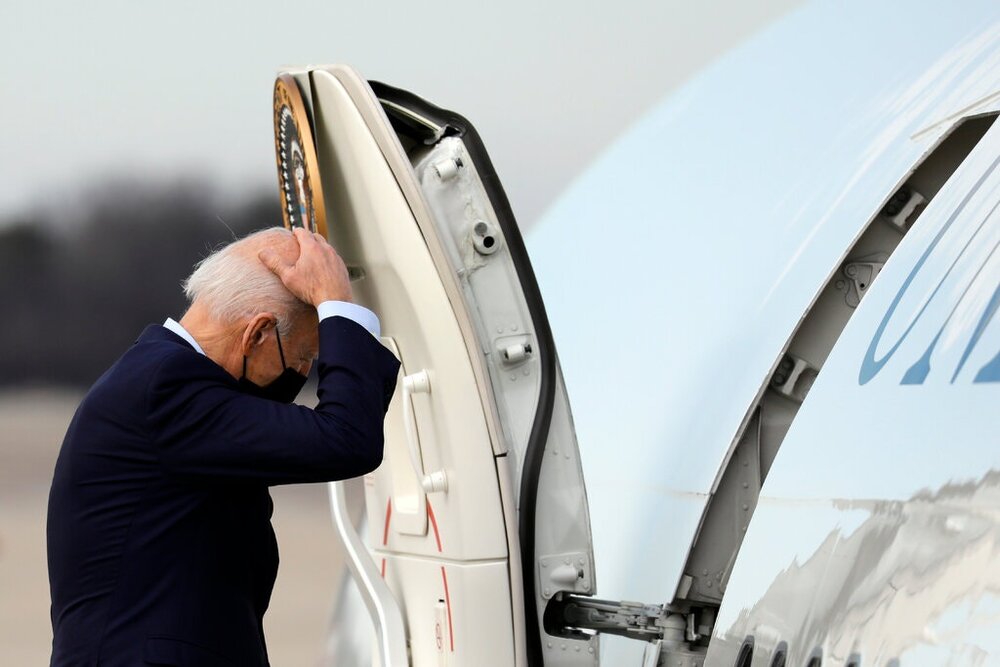‘Time not right’ for nuclear deal talks, Iran says

TEHRAN - Iran has rejected the suggestion to negotiate directly with the United States in an informal meeting proposed by Europeans to revive the JCPOA that former President Donald Trump quit nearly three years ago.
Saeed Khatibzadeh, spokesman for Iran’s Foreign Ministry, noted recent measures taken by Washington and Europeans had led Iran to conclude that the “time was not right” to hold such talks.
“There has been no change in America’s positions and actions,” Khatibzadeh said in a Foreign Ministry statement. “The Biden administration has not set aside Trump’s maximum pressure policy, nor has it announced its commitments” under the 2015 nuclear deal abandoned by Trump.
Biden has insisted the United States will return to the deal if Iran first returns to the commitments it made when it was signed. Iran has demanded that the U.S. lift all sanctions against it, and it has recently taken steps to increase uranium enrichment and limit the access by International Atomic Energy Agency (IAEA) inspectors to its nuclear sites.
That impasse prompted European signatories to the deal to suggest an informal meeting in which the Americans would attend as a guest and the two sides would get the opportunity to engage directly.
“Privately, American officials have expressed confidence that the timing questions could be resolved, noting that when the nuclear deal was being put into effect in early 2016, Iran and the United States engaged in a series of precisely coordinated actions that eliminated the question of who was making the first move,” the New York Times said.
The American newspaper said the political sensitivities are high and stressed, “Biden is aware that Republican opponents of the deal are looking for any signs that his new administration is making concessions without getting anything in return. And Iran has a presidential election in less than four months, meaning no Iranian officials want to appear to be bending to American will.”
It praised the U.S. moves to abandon Trump’s failed policy towards Iran, saying, “The good-will gestures included the abandonment of a failed effort by the Trump administration to force the re-imposition of United Nations sanctions that date to before the 2015 deal. Trump argued that since Iran had resumed the production of nuclear material at levels prohibited by the accord, those sanctions should automatically snap back into place.”
“The State Department also eased travel restrictions on Iranian diplomats coming to the United Nations and accepting Europe’s invitations to direct talks,” the Times added.
Iran is also angry that the U.S. and Europe are trying to take an anti-Iran step at the IAEA Board of Governors. Foreign Minister Mohammad Javad Zarif
A White House spokesman said Sunday that the United States was “disappointed” by Iran’s rejection of the talks but that “we remain ready to re-engage in meaningful diplomacy.”
Henry Rome, a senior analyst who follows Iran for the Eurasia Group, a political-risk consultancy, believed Iran’s decision in part reflected its leaders' desire to look resilient in the face of U.S. pressure.
“This is far from a death knell for negotiations,” he added.
In his remarks Sunday, Khatibzadeh said Iran would respond in kind to both pressure and concessions from Washington.
He asserted Iran will “return to its commitments” if sanctions are lifted. But, he warned, it will also “respond to aggressive actions accordingly.”
According to the Times, Rome said “Washington and Tehran will zig and zag in efforts to build up leverage and handle their own domestic political considerations.”
Iran is also angry at a move by the U.S. and Europe to adopt an anti-Iran resolution at the IAEA Board of Governors which started its session on Monday.
“We hope wisdom will prevail at IAEA Board”
Foreign Minister Mohammad Javad Zarif warned that if a resolution is ratified it will worsen the situation.
“We have given the necessary explanations about this situation to all members of the board of governors. We hope that wisdom will prevail.”
The chief diplomat warned if a resolution approved Iran will have its own approaches.
Khatibzadeh also told a press briefing on Monday that Iran won’t hold “bilateral talks” with the United States until Washington changes course.
In certain cases the Biden administration is even “worse” than the Trump administration, Khatibzadeh lamented.
Leave a Comment